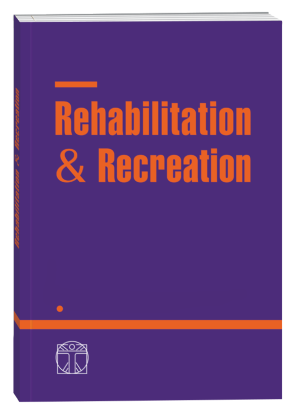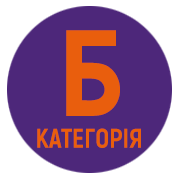CORRECTION OF ASTHENO-VEGETATIVE SYMPTOMS OF THE POST-COVID SYNDROME BY PHYSICAL THERAPY IN THE POSTPARTUM PERIOD IN WOMEN WHO UNDERWENT CAESAREAN SECTION
DOI:
https://doi.org/10.32782/2522-1795.2023.14.9Keywords:
postpartum period, postviral asthenia, rehabilitation, COVID-19, obstetrics and gynecology.Abstract
Purpose: to determine the effectiveness of restoring the health status of women with post-COVID-19 syndrome who underwent cesarean section, according to the dynamics of indicators of astheno-vegetative syndrome. Methods. 44 women were examined at the beginning of the late postpartum period. The control group consisted of 15 women who gave birth vaginally and did not suffer from COVID-19 during pregnancy and observation. The comparison group consisted of 15 women after caesarean section who suffered from COVID-19 during pregnancy, recovered during pregnancy and the postpartum period according to general recommendations for the rehabilitation of patients with coronavirus infection. The main group consisted of 14 women after caesarean section, suffered from COVID-19 during pregnancy, and performed a proven physical therapy program for 2 months (therapeutic exercises, elements of yoga; massage; aromatherapy sessions; autogenic training sessions). The condition of women was assessed according to the results of the Wayne questionnaire, Epworth sleepiness scale, Fatigue Assessment Scale, Fatigue Severity Scale. Results. During the initial examination, signs of autonomic dysfunction (according to the Wayne questionnaire), increased fatigue (according to the Fatigue Assessment Scale, Fatigue Severity Scale), and abnormal sleepiness (according to the Epworth sleepiness scale), were most pronounced in women with post-COVID-19 syndrome. During the re-examination, the best result in terms of all studied parameters was found by women of the control group, demonstrating a normal course of the postpartum period. The results of the women of the main group on the investigated indicators of astheno-vegetative syndrome were statistically significantly better (p<0.05) than those of the women of the comparison group. Conclusions. The use of physical therapy, taking into account the course of astheno-vegetative syndrome, is pathogenetically and practically justified in the process of physical therapy of women with post-COVID-19 syndrome in the postpartum period after abdominal delivery in order to improve the vegetative status, reduce the feeling of fatigue and weakness, and reduce pathological drowsiness.
References
Вейн, А.М. Вегетативные расстройства. Клиника. Диагностика. Лечение. Москва : МИА, 2003. 749 с.
Куравська Ю.В., Аравіцька М.Г. Ефективність відновлення психоемоційного та фізичного статусу жінок, які перенесли кесарів розтин, засобами фізичної терапії. Art of Medicine. 2022. 1 (21). С. 50–55. DOI: 10.21802/artm.2022.1.21.50
Протокол надання реабілітаційної допомоги пацієнтам з коронавірусною хворобою (COVID-19) та реконвалесцентам : Наказ Міністерства охорони здоров’я України від 20.04.2021 № 771. URL: https://www.dec.gov. ua/wp-content/uploads/2021/04/2021_771_ covid19_rehabilit.pdf
COVID-19 rapid guideline: managing the long-term effects of COVID-19. London: National Institute for Health and Care Excellence (NICE); December 18, 2020.
Elshafeey F, Magdi R, Hindi N, et al. A systematic scoping review of COVID-19 during pregnancy and childbirth. Int J Gynaecol Obstet. 2020. 150(1). Р. 47–52. doi:10.1002/ijgo.13182
Johns MW. A new method for measuring daytime sleepiness: the Epworth sleepiness scale. Sleep. 1991. 14(6). Р. 540–545. doi: 10.1093/sleep/14.6.540
Krupp LB, LaRocca NG, Muir-Nash J, Steinberg AD. The fatigue severity scale. Application to patients with multiple sclerosis and systemic lupus erythematosus. Arch Neurol. 1989. 46(10). Р. 1121–1123. doi: 10.1001/archneur. 1989.00520460115022
Kuravska Yu, Aravitska M, Churpiy I, Fedorivska L, Yaniv O. Efficacy of correction of pelvic floor muscle dysfunction using physical therapy in women who underwent Caesarean section. J Phys Educ Sport. 2022. 22(3). Р. 715–723. doi: 10.7752/jpes.2022.03090
Lee DH, Lee J, Kim E, Woo K, Park HY, An J. Emergency cesarean section performed in a patient with confirmed severe acute respiratory syndrome Coronavirus-2-a case report. Korean J Anesthesiol. 2020. 73(4). Р. 347–351. doi: 10.4097/kja.20116
Michielsen HJ, De Vries J, Van Heck GL. Psychometric qualities of a brief self-rated fatigue measure : The Fatigue Assessment Scale. J Psychosom Res. 2003. 54(4). Р. 345–352. doi: 10.1016/s0022-3999(02)00392-6
Silva Andrade B, Siqueira S, de Assis Soares WR, et al. Long-COVID and Post- COVID Health Complications: An Up-to-Date Review on Clinical Conditions and Their Possible Molecular Mechanisms. Viruses. 2021. 13(4) Р. 700. doi: 10.3390/v13040700
Ceulemans M, Hompes T, Foulon V. Mental health status of pregnant and breastfeeding women during the COVID-19 pandemic: A call for action. Int J Gynaecol Obstet. 2020. 151(1). Р. 146–147. doi: 10.1002/ijgo.13295
Carod-Artal FJ. Neurological complications of coronavirus and COVID-19. Complicaciones neurológicas por coronavirus y COVID-19. Rev Neurol. 2020. 70(9). Р. 311–322. doi: 10.33588/ rn.7009.2020179
El Sayed S, Shokry D, Gomaa SM. Post- COVID-19 fatigue and anhedonia: A cross-sectional study and their correlation to post-recovery period. Neuropsychopharmacol Rep. 2021. Р. 41(1). 50–55. doi: 10.1002/npr2.12154
Deng J, Zhou F, Hou W, et al. The prevalence of depression, anxiety, and sleep disturbances in COVID-19 patients: a meta-analysis. Ann N Y Acad Sci. 2021. 1486(1). Р. 90–111. doi: 10.1111/nyas.14506
Downloads
Published
How to Cite
Issue
Section
License

This work is licensed under a Creative Commons Attribution-NonCommercial-NoDerivatives 4.0 International License.











